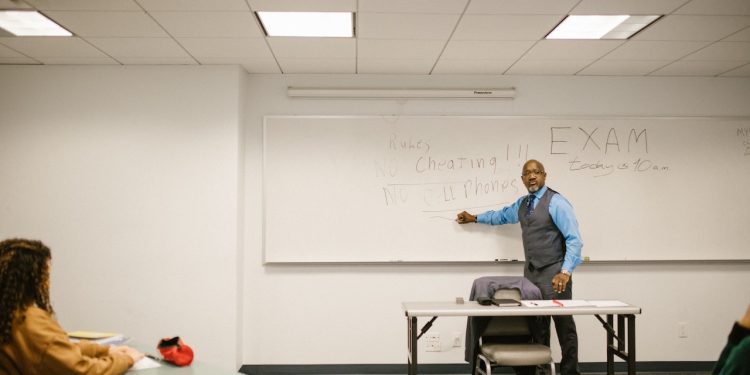Please read the title of this article once again and notice my choice of words. I did not say it is ‘fast becoming’; it already is a menace. I finally came to this unfortunate conclusion after a discussion I had with a school proprietor a few weeks ago, where he strove hard to justify this menace as a necessity in order to remain in ‘business’. I was angry, pained and extremely concerned that such a person can be put in care of nurturing our children.
He went on to defend his position by claiming that if a school does not engage in “subtle” malpractices then enrolment for the Senior Secondary 3 class could be as low as 3 students. He further revealed that this is why even parents encourage their children’s school to join this bandwagon.
How did we actually get to this point? Who is to blame and how do we begin to get out of it? With my little experience as a teacher and an administrator, I will try to dissect this vast menace.
When I was growing up in the 70’s, even borrowing a pencil/pen during a test or exam was a big “No-No” because you were expected to have all you needed with you. So, to then ask a question or stretch your neck? Ha! That was big trouble.
As a teacher, let me start with my perspective and that of my colleagues. Malpractice starts with a teacher offering extra lessons to his/her pupils or students. After teaching a child for the whole term, both in class and after school, there is the likelihood that the parents will question the teacher’s ability if the child still does not perform well. As a result, the urge arises to ‘pad’ the child’s marks in school or to give questions similar to exam questions as revision during home lessons. I, for one, have never been in support of the lesson=teacher phenomenon, and have never recommended it for my students. I prefer to teach a child without the attachment of monetary benefits as this emboldens me to tell the parents when the child is not meeting up to standard. I thank God that as our society is gradually becoming more accepting of the fact that learning challenges do exist, many of these challenges are being addressed in school and this enables the child to receive the necessary help early.
Undeniably, some of us teachers also ask for money in examination halls/centres so we can “do the needful”. I am often shocked at the confidence of these teachers, when I hear such stories from examination candidates. It now even happens in ordinary common entrance exams! Please tell me, except in rare cases where the student suffers from a learning disability, which of these entrance exams can the popular Ugo C. Ugo textbooks not combat? It is no wonder that it is now common to find adults and parents in particular, lurking around when you pass by examination centers.
A child who has been assisted from primary through secondary to university, is simply one you will need to continue “assisting” for the rest of his/her life, because as a parent/teacher, you have concluded that the child is incapable of achieving anything by himself or herself.
This brings me to the ethics of the profession. As a teacher you are first a role model to your students. This is because we spend so much time with these children over the years and all the while, they consciously or subconsciously imbibe what we do, even more than what we say. I remember with much admiration, my Headmistress in school, Mrs. E.F.I Kukoyi of Command Children’s School, Cantonment, Ikeja Lagos, who we joined recently to celebrate her 90th Birthday. Mrs. Kukoyi made a huge impact on my life. Till this day, I credit my love for wearing nicely cut gowns, looking smart and walking tall to her influence. We need to be careful how we impact lives as posterity will judge us.
I appeal to all my colleagues out there. As we celebrate Teachers Day in the month of October every year, ask yourself this: “Can I boldly say I am truly worthy of my profession? How will my students remember me? What will they remember for, in particular?” I once heard a student say that his teacher “jaa si” (meaning he/she “understands how things are done” in Yoruba). I enquired in what way, and the student replied that he can get you any exam paper you need (internal and external). Imagine making that teacher an Examination Officer! Would that not be the tragedy of the century? You would have just “given the dog a bone”.
I can go on and on about the unfortunate contribution of teachers to this menace, but at this point I will soft pedal and let the rest be left to your imagination.
Don’t miss the next piece on school owners.
“Changing lives one person at a time”



















































































 EduTimes Africa, a product of Education Times Africa, is a magazine publication that aims to lend its support to close the yawning gap in Africa's educational development.
EduTimes Africa, a product of Education Times Africa, is a magazine publication that aims to lend its support to close the yawning gap in Africa's educational development.